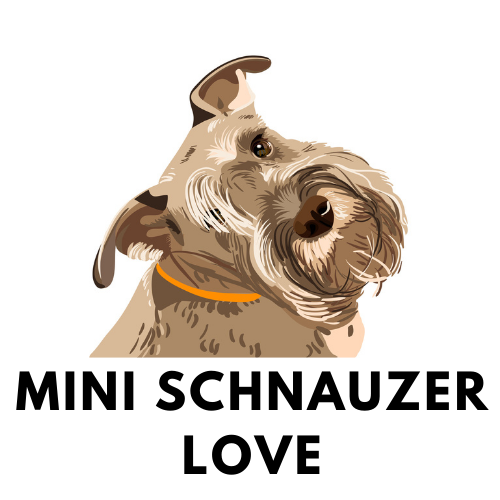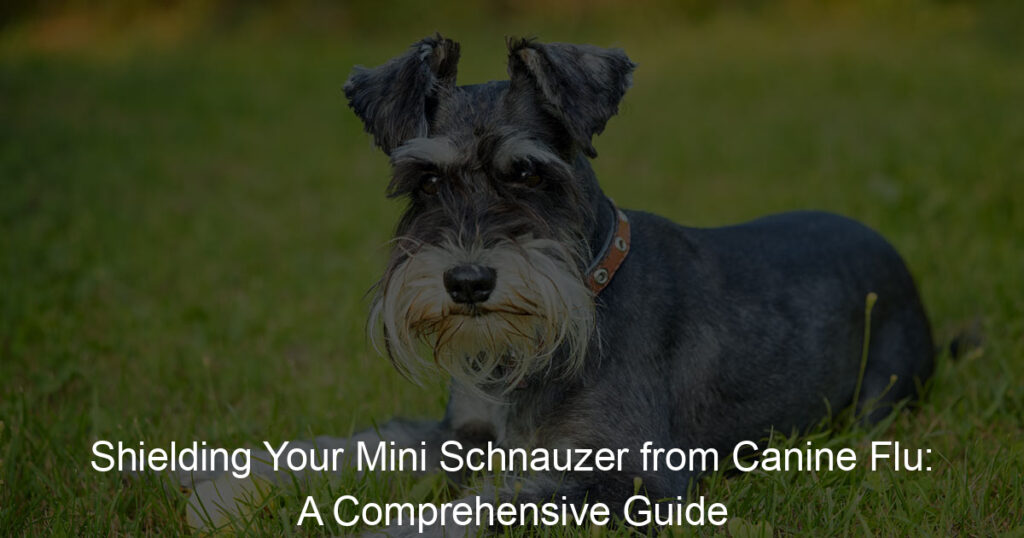
Understanding Canine Respiratory Illness
Just like humans, dogs can also suffer from various respiratory illnesses. These illnesses can affect their lungs and breathing, causing them discomfort and, in severe cases, can be life-threatening. In this section, we will delve into the definition of canine respiratory illness and discuss some common types that affect dogs.
- Definition of Canine Respiratory Illness
- Common types of Respiratory Illness in dogs
- Canine Influenza: This is a highly contagious virus that can cause symptoms like coughing, sneezing, and fever. It can be severe in some cases, especially in dogs with weakened immune systems.
- Kennel Cough: Also known as infectious tracheobronchitis, this is a highly contagious respiratory disease that often affects dogs in close quarters, like kennels or shelters.
- Pneumonia: This is an infection that inflames the air sacs in one or both lungs. It can be caused by bacteria, viruses, or fungi.
- Canine Distemper: This is a serious viral illness that affects a dog’s respiratory, gastrointestinal, and nervous systems.
Canine Respiratory Illness, also known as dog flu, is a term that covers a range of diseases that can affect a dog’s respiratory system. This system includes the nose, throat, windpipe, and lungs. When a dog has a respiratory illness, it may cough, sneeze, have a runny nose, or show other signs of being unwell like loss of appetite or lethargy.
There are several types of respiratory illnesses that can affect dogs. Here are a few common ones:
Understanding the different types of canine respiratory illnesses is the first step in ensuring your dog’s health. If you notice any signs of respiratory distress in your dog, such as persistent coughing or difficulty breathing, it’s important to seek veterinary care immediately.
Canine Flu in Mini Schnauzers
Canine flu, also known as dog flu, is a contagious respiratory disease that affects dogs of all breeds, including Mini Schnauzers. It’s caused by specific types of influenza viruses. Let’s delve into the symptoms of this illness.
Canine Flu Symptoms
Understanding the symptoms of canine flu can help you identify if your Mini Schnauzer is affected and seek timely medical attention. Here are the key signs to watch out for:
- First sign of Canine Flu in Mini Schnauzers
- Progression of symptoms
The first sign of canine flu in Mini Schnauzers is often a sudden onset of coughing. This cough can be dry and hacking, similar to what’s seen in kennel cough. Your dog may also have a runny nose and appear lethargic.
As the disease progresses, your Mini Schnauzer may develop a fever and lose their appetite. In severe cases, they may have difficulty breathing and show signs of pneumonia. If your dog exhibits any of these symptoms, it’s crucial to seek veterinary care immediately.
Remember, early detection of canine flu can significantly improve your Mini Schnauzer’s prognosis. Stay vigilant and monitor your pet’s health closely.
Understanding Canine Flu in Mini Schnauzers
Canine flu, also known as dog flu, is a contagious respiratory disease that affects dogs of all breeds, including Mini Schnauzers. This section will help you understand how Mini Schnauzers contract canine flu and the risks and complications associated with it.
- How Mini Schnauzers contract Canine Flu
- Risks and complications of Canine Flu in Mini Schnauzers
Mini Schnauzers, like other dogs, can contract canine flu through direct contact with infected dogs. This can happen at places where dogs congregate, such as dog parks, kennels, and pet daycare centers. The virus can also spread through the air, on objects (like toys and food bowls), and by people moving between infected and uninfected dogs. It’s important to note that canine flu is not transmissible to humans.
While canine flu is rarely fatal, it can still cause significant discomfort and illness in Mini Schnauzers. Some common symptoms include coughing, sneezing, nasal discharge, fever, lethargy, and loss of appetite. In severe cases, it can lead to pneumonia and other serious complications. Mini Schnauzers with chronic health conditions or those that are very young or old may be at a higher risk for complications.
Understanding the risks and ways of transmission can help you take preventive measures to protect your Mini Schnauzer from canine flu. Remember, the best defense against canine flu is prevention. Regular vet check-ups, good hygiene, and keeping your pet away from infected dogs can significantly reduce the risk of your Mini Schnauzer contracting this disease.
Preventing Canine Flu
Protecting your beloved Mini Schnauzer from the canine flu is crucial. Here are some health tips to help keep your furry friend safe and healthy.
Mini Schnauzer Health Tips
Mini Schnauzers, like all dogs, require regular care to maintain their health. Here are some key steps you can take:
- Regular Vet Check-ups: Regular vet check-ups are vital for your Mini Schnauzer’s health. These check-ups can help detect any early signs of canine flu and other health issues. Your vet can provide a comprehensive health assessment and recommend any necessary treatments or preventative measures.
- Importance of Vaccinations: Vaccinations are a crucial part of preventing canine flu. They help to strengthen your Mini Schnauzer’s immune system and protect them from various diseases, including the canine flu. It’s important to follow your vet’s recommended vaccination schedule to ensure your Mini Schnauzer is fully protected.
Remember, prevention is always better than cure. Regular vet check-ups and timely vaccinations can go a long way in keeping your Mini Schnauzer healthy and flu-free.
Dog Flu Prevention Tips
Preventing dog flu is a crucial part of maintaining your pet’s overall health. Here are some key strategies to help keep your furry friend safe from this common illness.
-
Hygiene Practices for Your Dog
Good hygiene is the first line of defense against dog flu. Regular grooming and bathing can help remove germs that may be on your dog’s skin or fur. It’s also important to clean your dog’s belongings, such as their bed, toys, and food bowls, on a regular basis. If your dog has been around other dogs that are sick, it’s especially important to clean them and their belongings thoroughly.
Another key hygiene practice is to avoid places where dog flu is common, such as dog parks, kennels, and pet stores, especially during flu season. If you do visit these places, make sure to wash your hands and your dog’s paws before you leave.
-
Proper Diet and Exercise
A healthy diet and regular exercise can boost your dog’s immune system, making them less likely to get sick. Make sure your dog is eating a balanced diet that includes all the necessary nutrients. This might include a mix of dry and wet food, or a diet recommended by your vet.
Regular exercise is also important for your dog’s health. It can help keep their weight in check, strengthen their immune system, and improve their overall well-being. Aim for at least 30 minutes of exercise a day, whether that’s a walk around the block, a game of fetch in the yard, or a run in the park.
Remember, while these tips can help prevent dog flu, they’re not foolproof. It’s always a good idea to talk to your vet about other ways to protect your dog from this and other illnesses.
Mini Schnauzer Flu Prevention
Keeping your Mini Schnauzer healthy and flu-free is a priority for any responsible pet owner. In this section, we will explore some preventive measures that are specific to Mini Schnauzers. These measures will help protect your furry friend from the canine flu and ensure their overall respiratory health.
Preventive Measures Specific to Mini Schnauzers
Mini Schnauzers, like all dog breeds, have their unique health needs. When it comes to preventing the flu, there are two main areas to focus on: vaccinations and respiratory health care. Let’s dive into these topics.
- Specific Vaccinations for Mini Schnauzers
- Special Care for Mini Schnauzer Respiratory Health
Vaccinations are a crucial part of any dog’s health care routine, and Mini Schnauzers are no exception. The canine influenza vaccine is particularly important for this breed. While it doesn’t completely prevent the flu, it can significantly reduce the severity and duration of the illness if your dog does get infected. Always consult with your vet to ensure your Mini Schnauzer is up-to-date with all necessary vaccinations.
Mini Schnauzers can be prone to certain respiratory issues, which can make them more susceptible to the flu. Regular vet check-ups are essential to monitor their respiratory health. In addition, maintaining a clean environment, providing a balanced diet, and ensuring your Mini Schnauzer gets plenty of exercise can all contribute to their respiratory health and overall well-being.
In conclusion, while the flu can be a serious illness for Mini Schnauzers, there are steps you can take to reduce their risk. By focusing on vaccinations and respiratory health care, you can help keep your Mini Schnauzer healthy and happy.
Dog Flu Treatment
When it comes to treating canine flu, there are several options available. These range from home care methods to professional veterinary care. It’s essential to understand these options to provide the best care for your furry friend.
Treatment Options for Canine Flu
Here are some of the most common treatment options for dogs with the flu:
- Home Care for Dogs with Canine Flu
- When to Seek Veterinary Care
Home care is often the first line of defense against canine flu. This involves ensuring your dog is well-rested and hydrated. The use of a humidifier can help ease breathing difficulties. It’s also important to isolate your dog from other pets to prevent the spread of the virus.
While home care can be effective, it’s crucial to know when to seek professional help. If your dog’s symptoms persist for more than a few days or worsen, it’s time to visit the vet. Signs that your dog may need veterinary care include persistent coughing, high fever, and difficulty breathing.
Remember, every dog is unique, and what works for one may not work for another. Always consult with a professional if you’re unsure about the best course of treatment for your pet.
Recovery from Canine Flu
Recovering from the Canine Flu is a process that requires both time and care. It’s important to understand the steps involved in post-treatment care and the potential long-term effects of the illness. Let’s delve into these two crucial aspects of recovery.
- Post-treatment care for your dog
- Long-term effects of Canine Flu
Once your dog has been treated for Canine Flu, it’s crucial to provide them with a comfortable and stress-free environment. This helps to speed up their recovery process.
Ensure that your dog is well-hydrated. Provide them with plenty of fresh water and encourage them to drink. This helps to keep their throat moist and reduces discomfort.
Regular feeding is also important. If your dog has lost their appetite due to the flu, try tempting them with their favorite foods or consider feeding them a special diet recommended by your vet.
Lastly, remember to limit your dog’s physical activity. They need plenty of rest to recover fully.
Most dogs recover completely from Canine Flu, but in some cases, there can be long-term effects. These may include chronic respiratory issues, such as a persistent cough or difficulty breathing.
In rare cases, Canine Flu can lead to more serious conditions like pneumonia. If your dog continues to show symptoms or seems to be getting worse instead of better, it’s important to seek veterinary care immediately.
It’s also worth noting that once a dog has had Canine Flu, they can still get it again in the future. This is why prevention, such as regular vaccinations and good hygiene practices, is so important.
In conclusion, while Canine Flu can be a serious illness, with proper post-treatment care and an understanding of the potential long-term effects, your dog can make a full recovery and go on to lead a happy, healthy life.
| Post-Treatment Care | Long-Term Effects |
|---|---|
| Provide a stress-free environment, ensure hydration, regular feeding, and plenty of rest. | Possible chronic respiratory issues, risk of pneumonia, possibility of re-infection. |
Case Studies
In this section, we will explore two real-life case studies of Mini Schnauzers who successfully recovered from Canine Flu. These stories will provide a deeper understanding of the disease and the recovery process.
Mini Schnauzer’s successful recovery from Canine Flu
- Case Study 1: Max’s Recovery
- Case Study 2: Bella’s Battle with Canine Flu
Max, a 5-year-old Mini Schnauzer, contracted Canine Flu despite his owner’s best efforts to prevent it. He showed symptoms like coughing, sneezing, and loss of appetite. His owner promptly took him to the vet, who diagnosed him with Canine Flu and started the treatment immediately.
Max’s treatment plan included rest, hydration, and medication to control his symptoms. His owner also isolated him from other pets to prevent the spread of the virus. With consistent care and treatment, Max started showing signs of recovery after two weeks. He regained his appetite and his energy levels improved. After a month, Max was back to his playful self, showing that with timely treatment and care, Canine Flu can be effectively managed.
Bella, a 3-year-old Mini Schnauzer, also contracted Canine Flu. Her symptoms were severe, including a high fever and difficulty breathing. Bella’s owner immediately sought veterinary care. The vet confirmed the diagnosis of Canine Flu and started aggressive treatment due to the severity of Bella’s symptoms.
Bella’s treatment included antiviral medications, antibiotics to prevent secondary infections, and supportive care like fluids and rest. Bella’s owner followed the vet’s instructions diligently, ensuring Bella took her medications and got plenty of rest. After a challenging three weeks, Bella started to recover. Her fever subsided, and her breathing improved. Bella’s case demonstrates that even severe cases of Canine Flu can be successfully treated with prompt and aggressive veterinary care.
These case studies highlight the importance of early detection, prompt veterinary care, and consistent follow-through with the treatment plan in managing Canine Flu in Mini Schnauzers. Remember, each dog is unique, and their recovery journey may vary. Always consult with your vet for the best course of action.














